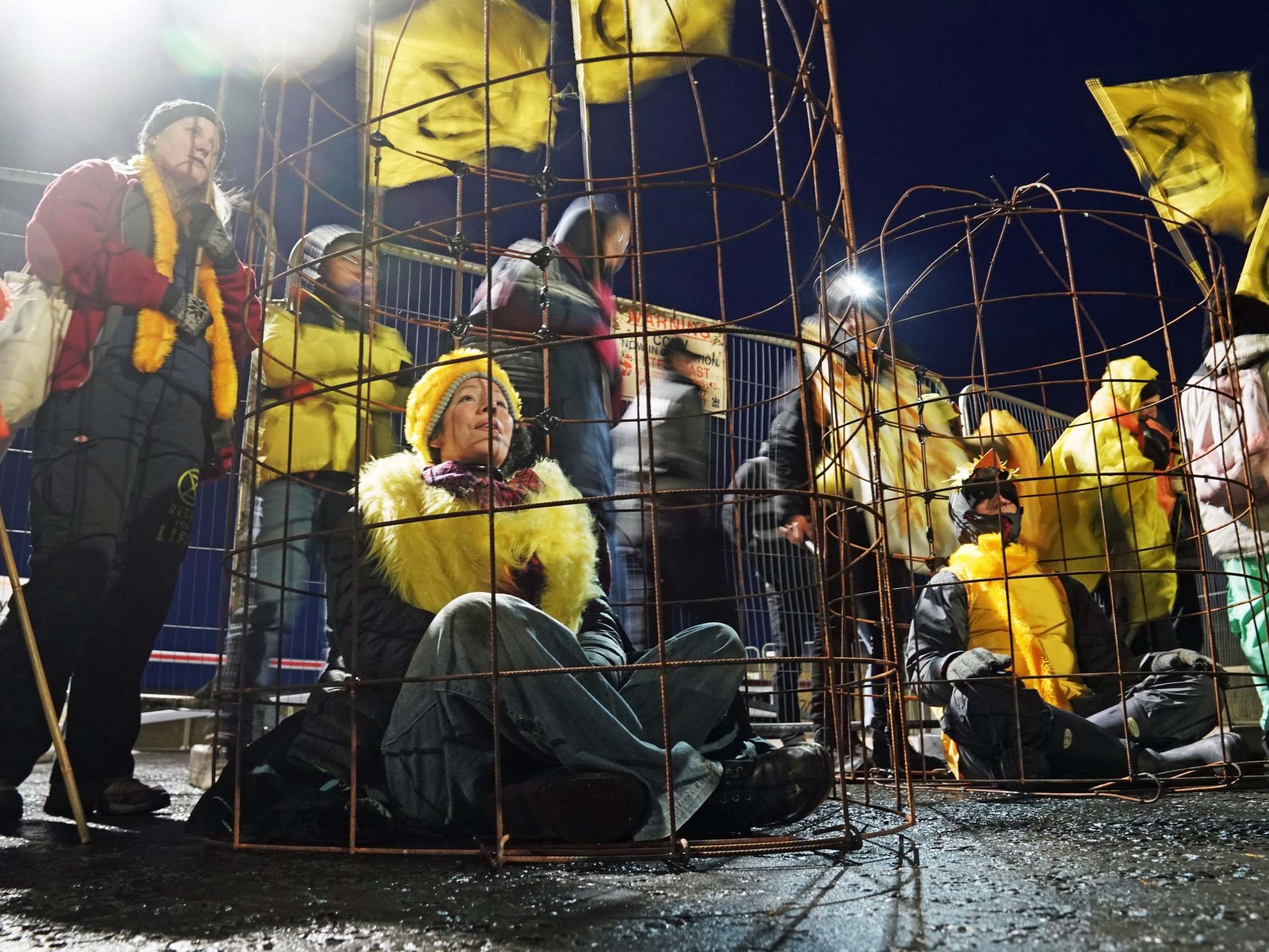Climate crisis: County Durham’s last coal mine closes, following successful campaign by locals and environmental activists
Protests and thousands of objections were lodged against extension of Bradley open cast mine before government rejected planning application

One of England’s last remaining coal mines extracted its final lumps of the fossil fuel on Monday, marking an end to the industry in County Durham that has employed hundreds of thousands of people working the rich seams of coal over centuries.
The owners of Bradley open cast mine, The Banks Group, which only began operations at the site in 2018 and extract 150,000 tonnes of coal a year, were denied permission to expand the mine, following a successful campaign by former miners and environmental activists.
The firm has now said without the expansion, which would have allowed it to extract an additional 90,000 tonnes of coal a year, the mine is no longer viable, so it is instead ceasing operations in the area and will focus on “landscaping and restoration”, with the land set to become a wildlife reserve.
The decision, which came after Durham County Council received over 5,500 objections to the plan — largely due to environmental concerns, has been welcomed by campaigners and people in the local community who had fought against the original opening of the mine for years.
In February, groups including Extinction Rebellion mounted a three-day protest at the site, with activists dressed as canaries. “Coal is our heritage, not our future,” the group said at the time, and told planning minister Robert Jenrick,“if you’re in a hole, stop digging!”
But Banks Group managing director Gavin Styles said: “I am hugely frustrated, angry and sad to have to tell my skilled, hard-working and loyal team at Bradley that we will no longer be able to employ all of them, even though there is still significant demand from British industry for the coal and fireclay that they produce.
“We have been continuing, without any support from the public purse, to invest in training resources which ensure our colleagues’ certifications remain fully up-to-date and transferable and will continue to do everything we possibly can to provide maximum support to all those affected by this demoralising situation.”
The closure of the mine leaves just one other surface mine operational in England — Hartington mine in Derbyshire — which is also scheduled for closure. Several surface mines still operate in Wales and Scotland, but they are also slated for closure, with the last set to end operations in 2022.
Small-scale underground mines also continue to operate in the Forest of Dean and in Cumbria, extracting small quantities of coal.
Dependence on coal in the UK has diminished rapidly. As recently as 2012, coal-fired power produced 40 per cent of the country’s energy demands.
Last year, coal accounted for just 2 per cent of energy generation, amid a surge in renewables, particularly wind power, along with cheaper gas.
But while the power sector has moved away from coal, the UK’s steel industry remains dependent on it.
For this reason, the Banks Group is awaiting a government decision on plans to open a new open cast mine at Highthorn near Druridge Bay in Northumberland, while another at Dewley Hill, to the west of Newcastle is set to be considered by Newcastle City Council in the coming months.
At Highthorn the company plans to extract 3 million tonnes of coal for the steel industry, which is largely dependent on imported coking coal.
Mr Styles said: “While British industry still needs coal, it is patently obvious that it is better for our climate and for our jobs to mine it here in the UK, rather than exporting our jobs and increasing global greenhouse gas emissions by relying even more on importing coal over thousands of miles from Russia, the USA and Colombia.
“We have continued to do everything we can to make the case for the approval of our Highthorn scheme and to make the consequences of the government’s failure to provide a timely decision on it crystal clear — but so far, it’s all been to no avail.
“By not making a decision on Highthorn, they are letting hundreds of people in the North East and their families down at the most difficult time imaginable — and with almost four million people already expected to be unemployed across the UK, this inaction represents a scandalous dereliction of duty.”
However, the government’s Committee on Climate Change has told Boris Johnson’s administration a “green recovery” is the only option to ensure a resilient economy can emerge from the coronavirus crisis, and along with the CBI has called for the creation of new jobs which will help the UK reach its emissions reduction goals, and “avoid supporting old technologies”.
Join our commenting forum
Join thought-provoking conversations, follow other Independent readers and see their replies
Comments
Bookmark popover
Removed from bookmarks